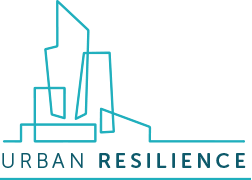Professionalism across the drilling industry is an over-looked factor in groundwater stewardship. It takes on an increasing significance as urban households across sub-Saharan Africa access groundwater reserves directly to self-provide their own water supplies.
The African Water Association Congress 2020 witnessed an increasing focus on the important role groundwater plays in urban water supplies across Africa. It was my pleasure to facilitate two lively panel debates on what are important, but often overlooked, themes in the development of groundwater resources. The first panel considered professionalism in the drilling industry whilst the second discussed the increasing number of urban households commissioning their own boreholes.
The drilling industry includes a range of professions and roles ranging from the owner of a drilling company, through drilling operators to hydrogeologists and drilling supervisors. The skills and experience required can vary substantially, depending on the hydrogeology involved and the nature of the boreholes being drilled. What does not vary are the negative impacts poor drilling professionalism can have, on borehole functionality. This results in losses to those who commission boreholes and, potentially, adverse implications for groundwater quality. Across Africa there is also a shift in who is commissioning boreholes. What was once the preserve of governments, firms and donor bodies is now increasingly witnessing direct action by households themselves.
Although, there are examples of good practice across the African continent, panellists recognised that there is are problems with professionalism. This can be due to a lack of experience of the drillers and supervisors, as well pressures to reduce costs. All too often experience is gained only through what can be gleaned ‘on-the-job’ leading to skills-decay across the profession over time. The privatisation of the drilling industry has exacerbated the situation as there are few incentives to encourage investments in training, and limited places where training occurs. Where the ground is easy to penetrate and water is relatively shallow, manual drilling techniques can be used. This means that skills gap becomes more acute as competition by low-cost drillers erodes the potential value of investments in training and skills development.
Panellists argued that a professional drilling industry requires strong regulation by government. Drilling companies should be licensed and boreholes should be assessed for the quality of construction. Competition amongst drilling companies should be based on minimum standards and not reward cost-cutting and poor employment conditions. Government can also support the provision of training facilities.
In Uganda, experienced drillers now provide the benefit of their knowledge to a new generation of professionals, which builds on the legacy of past investments in training (e.g. http://www.rural-water-supply.net/en/resources/details/876). A wider challenge is raising awareness of the skills and expertise required to successfully access groundwater through boreholes amongst government officials and the wider public. This highlights the importance of a broader debate on the theme of groundwater and urban water supplies.
The critical role played by the wider public was also discussed by the second panel in the context of the remarkable rise in the proportion of urban households commissioning their own boreholes in many African countries. Although official figures are hard to find, both the panellists and the audience recognised this to be a rising trend across many cities in Africa. Rapid rates of urbanisation have left many with no access to public piped water supplies, or with only erratic and unpredictable supplies. In these circumstances, households source their own water supplies. For many households, groundwater forms an accessible, convenient and reliable source of water, even in countries where officially this is not permitted.
Panellists felt that the implications of this rising trend of urban self-supply are not yet clear. There are social and economic benefits for those who are able to access a reliable source of water, but with potential costs for those who are excluded. Debates on the potential costs of lost revenue to water utilities were inconclusive, as households often act because they are not being reliably supplied by a utility. Where there is a proliferation of borehole development then the potential impacts to the groundwater resource were acknowledged to be substantive. However, little is known of the quality of borehole construction or overall abstraction rates at present. Panellists indicated that anecdotal evidence points to a lack of awareness amongst urban populations of the importance of good groundwater management and highlighted that, when this is combined with poor professionalism in the drilling industry, there are risks for the resource. An emerging concern is the number of abandoned boreholes, which tend to be left unsealed, associated with urban self-supply and poor drilling professionalism.
The panel discussion served to highlight the importance of this crucial topic, but recognised that a lack of robust data limits the opportunities for informed debate. In the absence of data, panellists argued that the rise of off-grid access to groundwater imperilled the stewardship of the groundwater resource on which many cities now relied. Returning to the theme of the first panel, panellists stressed how education, communication and engagement with the wider public was as important for good groundwater stewardship as technical skills and strategies.
Our thanks to Skat Foundation, the Ugandan Ministry of Water and Environment, the Ugandan Drilling Contractors Association and UK Research and Innovation for supporting this session. We thank each of the participants: Callist Tindimugaya, Kerstin Danert, Michael Ale, Jenny Grönwall, Moshood Tijani; Chikondi Shaba and Moustapha Diene.
The original version of this blog was previously published by the NERC-funded UPGro (Unlocking the Potential of Groundwater for the Urban Poor) project. It can be found at: https://upgro.org/2020/03/17/drilling-dialogues-conversations-about-drilling-professionalism-and-the-rise-of-the-off-grid-city/
Dr. Adrian Healy is a UKRI Future Leaders Fellow. All views expressed are his own.
